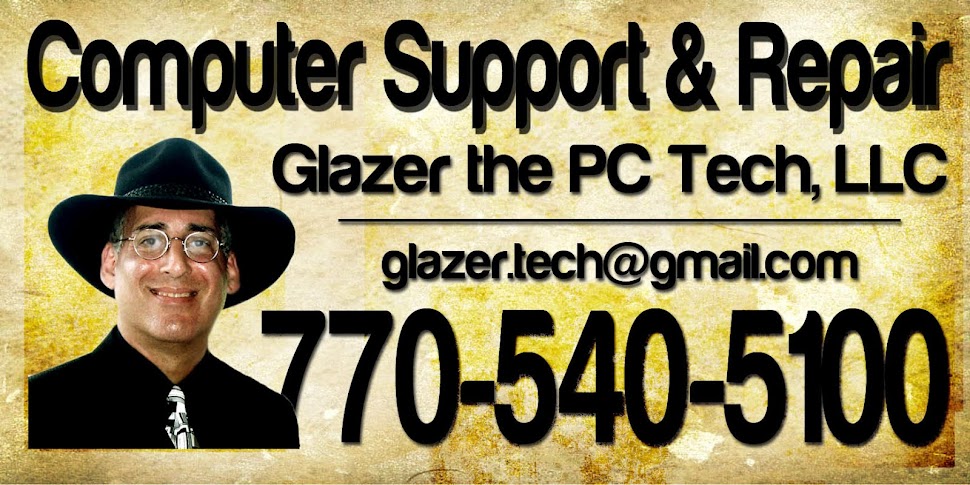Computer Care: Free programs can be great, but sometimes at a price
By Arthur Glazer glazer.tech@gmail.com
POSTED: September 17, 2011 12:30 a.m.
All too often, free programs aren't worth what you paid for them. Many are junk; some are only malware, not even real applications. Others come with bloatware attached to them, which leaves you wondering where that new desktop icon or browser toolbar came from.
Let's separate the wheat from the chaff. There are some good, free applications out there; you just need to know where they are. These are not pirated or trial versions, but genuine, legal programs of quality available for download at no cost.
A free download is not necessarily a free program. All downloads are free. A cornucopia of no-cost downloads exist, from tiny utilities to full-blown office suites. If you can't afford Microsoft Office, Adobe Photoshop or even Windows, read on.
Eight years ago, I purchased Office 2003, but since then two newer versions have come out. I can't keep up with it. Although they are wonderful productivity suites, they are costly, to say the least.
Then about the time Office 2007 was released, I discovered the free Open Office suite online. At openoffice.org you can download a perfectly free and useful Microsoft Office-like suite of programs, from a word processor and graphics program to something for your spreadsheets and presentations.
Recently I've graduated to a newfound suite: LibreOffice, downloadable at libreoffice.org. Unable to put my finger on why, I just like it better. It's a similar, free, user-friendly, professional-quality productivity suite. Both suites are able to read and save to the familiar file formats (doc, xls, ppt, etc) and both have helpful tutorials on their websites.
Another huge money-saver is Gimp, the Photoshop alternative available at gimp.org/downloads. Although version 2.7 has been released, it is considered by its developers to still be buggy or unstable. That's the way with open-source software. They release versions that are yet a work-in-progress. Get version 2.6, available on their download page. It is stable.
Something that all of us need and usually pay for annually is an anti-virus program. Most of the big companies now have free versions and they are getting better all the time. The big caveat here is that as important as this type of program is, you get what you pay for.
There is no support and fewer options than with the paid versions of the programs. Many of the older free anti-virus apps lacked a scheduler, meaning you had to click the "scan" button on a regular basis. Not so anymore. But you do need to set up a schedule.
They usually update virus definitions by themselves, but you should still check for newer program versions regularly. AVG, Avast and Avira all have good free programs, although often they are hard to find (even on their websites). Remember that they are in business to sell products.
Some free utilities that I favor include Ccleaner, Malwarebytes, Advanced System Care, Foxit Reader and Revo Uninstaller. Good sources for these utilities are either from the authors' websites or places like download.com and PCWorld.com.
A good site to watch is giveawayoftheday.com. They have lots of games and screensavers, but you'll also find a useful utility there every now and then. You only have 24 hours to download whatever their daily offering is, and again, support is not included.
For saving and storing your documents in the cloud, there are many choices. Google Docs, Amazon Cloud Drive, Sky Drive and IDrive are all free. I like Dropbox. The more people you turn on to it, the larger your free storage space grows.
If you are a Charter Communications customer, look on their website after you log on to your account and sign up for the unlimited free storage space they have available for you.
Free doesn't stop at programs or storage. A Windows alternative is the open-source Linux operating systems and there are copious amounts of different versions for download. Look into Ubuntu or Debian as the most popular free Windows-like environments for your computer.
When installing open-source programs or operating systems, there is not much to be cautious about. But free commercial programs are another thing altogether. The ploy is often to lull you into a sense of false security with free bait.
Repeatedly, you find that an extra program or malware has been installed after that new one you intentionally installed. Scrutinize each window you come to, every box that is checked and each time you click "Next" and "OK." All it takes is one window that is not OK to bring your system down. Stay away from programs that have come to you in an email or especially in a pop-up. You will most likely infect your computer that way.
If in doubt, Google the program in question and see what others say about it. The Internet is a great resource for information as well as for programs.
There are new free apps appearing online all the time. You should remember that not all is bad, but unfortunately free programs often come with a price.
Arthur Glazer is a freelance writer and computer technician in Gainesville. His column appears biweekly on the Business page and on gainesvilletimes.com.


No comments:
Post a Comment
Got a Comment - or a quick question...